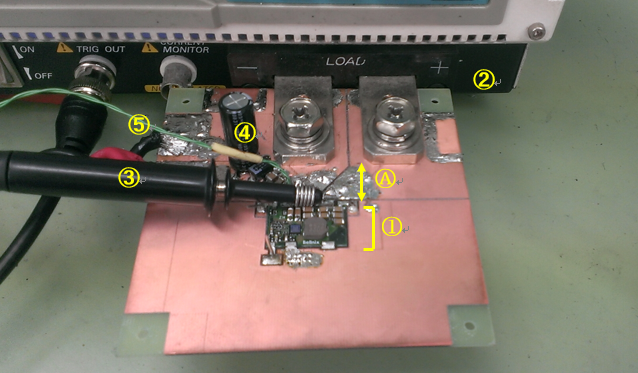The transient response for rapid load change is evaluated by the output voltage deviation when the load current is rapidly changed.
It can be said that a POL converter having small deviation is a good converter.
However, as the voltage deviation varies depending on various conditions, it is required to determine the conditions in advance for the comparison.
1. Description of the evaluation environment

#1: Test sample
Measure the waveform of transient response characteristics.
Remove GND wire from the voltage probe, wind an end of the a tin-plated wire around the GND terminal on the board, and wind the other end around the GND electrode of the voltage probe.
For the measurement, make the loop as small as possible between Vout and GND.
#2: Electronic load
#3: Voltage probeMeasure the waveform of transient response characteristics.
Remove GND wire from the voltage probe, wind an end of the a tin-plated wire around the GND terminal on the board, and wind the other end around the GND electrode of the voltage probe.
For the measurement, make the loop as small as possible between Vout and GND.
#4: Input capacitor
If the power supply lines are far, add a large input capacitor on the board.
2. Important matters
-
– Keep the distance as close as possible between the electronic load terminals and the test sample.
– If the “A” is too long or the pattern is too narrow, the output voltage deviation will increase (appear) at a rapid load change due to the inductance component of the pattern.